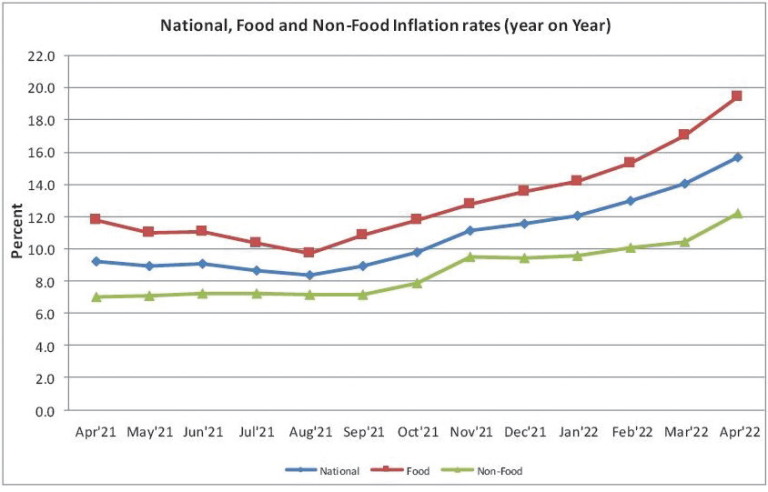World Bank sees elevated inflation
The World Bank says the country’s inflation rate would remain elevated this year on account of rising global commodity prices due to Russian invasion of Ukraine which has magnified the slowdown in the global economy.
In its June Global Economic Prospects Report issued last week, the bank observed that higher prices for farming inputs, such as seeds, fuel, and fertilisers, would therefore prolong food price pressures in Malawi and other sub-Saharan Africa countries.

Said the bank: “Costlier farming inputs could reduce productivity in Malawi and other countries, further deepening food shortages.
“This coupled with higher fertiliser prices could also worsen fiscal pressures, given that in many countries, government spending on subsidised fertilisers accounts for a large portion of public spending on agriculture.”
In a statement accompanying the report, World Bank Prospects Group director Ayhan Kose said developing economies will have to balance the need to ensure fiscal sustainability with the need to mitigate the effects of overlapping crises.
He said: “Communicating monetary policy decisions clearly, leveraging credible monetary policy frameworks, and protecting central bank independence can effectively anchor inflation expectations and reduce the amount of policy tightening required to achieve the desired effects on inflation and activity.”
In Malawi, maize, as part of the food component, accounts for about 53.7 percent of the consumer price index, an aggregate basket of goods and services used in computing inflation.
In its latest market intelligence report, the Reserve Bank of Malawi indicated that prices of commodities are projected to remain elevated, thereby affecting a wide range of economic sectors.
Reads the report: “Beyond their broader impact on inflation, supply disruptions of key commodities could severely affect a wide range of economic sectors including crop agriculture, manufacturing, construction, and transport.
“Consequently, inflation is expected to remain high, derailing the post-Covid-19 economic recovery even further.”
Malawi Inflation rate is fast rising triggered by a rise in food and non-food inflation.
National Statistical Office figures show that headline inflation rate for April rose by 1.6 percentage points to 15.7 percent.
RBM has since put 2022 inflation target at 12.3 percent from 10.4 percent last year.





